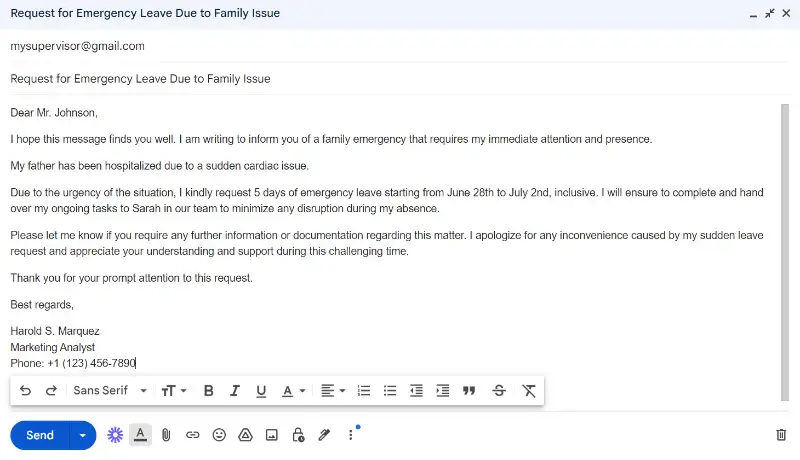Over the past few decades, temporary jobs have become an essential part of the workforce. They are often associated with flexible work schedules as ideal work environment, the opportunity to try out different industries, and the possibility of being hired on a full-time basis.
As companies adjust to volatile economic conditions and seasonal fluctuations, the demand for temporary workers is surging.
This article will discuss the trend of temporary and seasonal jobs, the advantages they offer, and what you should consider when looking for such employment opportunities.
What are temporary jobs?
Sometimes referred to as "temp jobs", temporary jobs are positions that are seasonal or last for a short duration of time.
While permanent or full-time positions last indefinitely, temporary work is done for a finite period of time. The duration of these jobs can range from a few days to several months. It can even stretch for a little more than a year.
They can be found in almost every industry and job function – from administrative to skilled specialized work.
Create your professional Resume in 10 minutes for FREE
Build My Resume
Temporary jobs: examples and comparison table
| Category | Description | Example Roles | Typical Duration |
|---|---|---|---|
| Seasonal Work | Jobs tied to specific times of the year, often recurring annually. | Retail assistant, agricultural worker | 1-6 months |
| Holiday Jobs | Temporary positions specifically created for the holiday season, often in retail or hospitality. | Santa’s helper, holiday sales associate | 2-3 months |
| Freelance/Contract Work | Short-term project-based roles, usually for specialized skills. | Graphic designer, web developer | Varies (from weeks to months) |
| Temporary Agency Work | Roles filled by a temp agency, where employees are assigned to different employers for short periods. | Receptionist, data entry clerk | 1 day to 6 months |
| Internships | Short-term roles aimed at gaining work experience, often related to studies or early career. | Marketing, engineering intern | 1-3 months (can extend to 6) |
| Gig Work | On-demand jobs typically arranged through digital platforms. | Deliverer, ride-share driver | Varies (task-based, often per day or week) |
| On-Call Jobs | Jobs where employees are only called in as needed, usually with short notice. | Substitute teacher, on-call nurse | Varies (on-demand basis) |
| Project-Based Work | Temporary roles for the duration of a specific task, ending when the assignment concludes. | Construction worker, event coordinator | Weeks to 1 year |
| Temp-to-Perm Jobs | Employment with the potential to become permanent if performance is satisfactory. | Administrative assistant, warehouse worker | 3-6 months |
| Maternity/Paternity Cover | Temporary positions to cover for an employee on maternity or paternity leave. | HR coordinator, teacher | 3-12 months |
| Casual Work | Irregular hours, often on an as-needed basis, with no commitment to ongoing performance. | Bartender, retail sales associate | Varies (from days to months) |
| Trial Period | Intended to assess your fit before offering a longer-term contract. | Customer support agent, junior analyst | 1-3 months |
Benefits of temporary jobs
Flexibility
A short-term position is perfect for people who work to fit around other commitments. This can be a student, a freelancer, or someone with family responsibilities who wants to earn a little more.
Skill development
Many temp jobs provide useful training, where you can develop new or improve existing skills as you work.
This can be particularly useful for those changing industry.
Networking opportunities
In addition, working in temporary jobs exposes individuals to a broad professional spectrum. They are likely to come into contact with a number of specialists who, in turn, may facilitate access to more permanent job opportunities in the future.
Work experience
Temporary positions can help to fill up your resume, especially when you’re new on the job market or returning to work after a period of time.
Many employers see temp job experience as key in developing adaptability and a willingness to learn.
Potential for permanent placement
Many temporary jobs transform into permanent ones. It is not uncommon for employers to exploit the use of temp jobs as a tryout for a worker’s suitability with the company before upgrading to full-time.
How to find temporary jobs?
Finding temporary jobs is relatively simple:
- Staffing agencies. Examples of well-known agencies include Adecco, Kelly Services, and Manpower.
- Online job boards. Indeed, Glassdoor, and FlexJobs, have a dedicated section for temporary or contract work. You can filter postings to find temp positions in your preferred location or industry.
- Company websites. Some companies post temporary job openings directly on their websites, particularly during high-demand seasons like holidays or special projects. Checking these sites regularly can help you find opportunities quickly.
- Networking. Often, temp job opportunities come through word-of-mouth. Letting people in your network know that you are open to short-term work can lead to offers that may not be publicly advertised.
- Job fairs. Some job fairs, especially those targeted at specific industries, offer temporary job opportunities. Attending these events can provide direct access to employers who are hiring for short-term needs.
- Social media. LinkedIn and other social media platforms are increasingly used by employers to advertise seasonal positions.
- Freelance marketplaces. Platforms like Upwork and Fiverr provide access to projects across various fields, from writing to design and programming.
Temporary jobs examples
Hospitality and tourism
Many hotels, resorts, and restaurants hire temporary staff to manage busy seasons, such as summer or holiday periods. These jobs often involve customer service and can offer flexible hours.
Roles: Event staff, hotel receptionists, tour guides, and restaurant workers.
Retail
Retail stores frequently hire temporary workers during peak shopping seasons, such as holidays. These jobs often include assisting customers, restocking shelves, and managing transactions.
Roles: Sales associates, cashiers, and stock clerks.
Administrative Support
Many businesses need temporary help during busy periods or when employees are on leave. Tasks may include managing emails, scheduling appointments, and organizing documents.
Roles: Administrative assistants, data entry clerks, and receptionists.
Construction
Construction projects often require additional manpower, especially during peak building seasons. Temporary roles in this field can provide on-the-job training and experience.
Roles: Laborers, site assistants, and equipment operators.
Remote Work
With the rise of remote work, many companies are hiring temporary staff for projects that can be completed from home. Roles can vary widely, from graphic design to content writing.
Roles: Freelancers, virtual assistants, and project-based workers.
Seasonal Agriculture
Agriculture relies heavily on seasonal workers, particularly during planting and harvest times. Temporary roles may involve picking crops, sorting produce, or working in greenhouses.
Roles: Farm jobs, harvesters, and packers.
H2B visa jobs
Through the H2B visa program, American employers can hire foreign workers to perform jobs when there are not enough U.S. specialists available.
Eligibility
- Employers: Must demonstrate a temporary need for workers and file a petition with the U.S. Citizenship and Immigration Services (USCIS).
- Workers: Must be from an eligible country and meet specific qualifications for the job.
Application Process
- Job offer. The employer must provide a job offer and describe the job duties and conditions.
- Labor certification. Employers must obtain a certification from the Department of Labor, proving the need for foreign labor.
- Petition submission. Once approved, the employer submits a Form I-129 to USCIS.
- Visa application. Workers apply for the H2B seasonal jobs visa at a U.S. embassy or consulate.
- Interview. You may be required to attend an interview and provide biometric information as part of the visa process.
Create your professional Resume in 10 minutes for FREE
Build My Resume
FAQ
- Can I find seasonal work through a staffing agency?
- Yes, they specialize in connecting individuals with temporary job opportunities in various industries.
- Can I work multiple temporary jobs at once?
- Yes, you can have several roles as long as they don’t conflict with each other. However, time management and scheduling are key.
- Do holiday jobs offer paid time off or vacation days?
- Temporary employees typically don’t receive PTO or vacation days, but some employers offer accrued benefits for longer-term temps.
- Do temporary jobs have a probationary period?
- Some may have a period during which both the employer and employee assess the fit for the role.
Conclusion
Temporary jobs are more than just a stopgap; they are an integral part of the evolving employment landscape.
From providing flexibility and broadening skill sets to creating pathways to permanent roles, temporary employment offers numerous benefits for both workers and businesses.
Whether you're entering the job market for the first time or transitioning between career paths, temp jobs can offer unique opportunities for growth, experience, and financial stability.





















